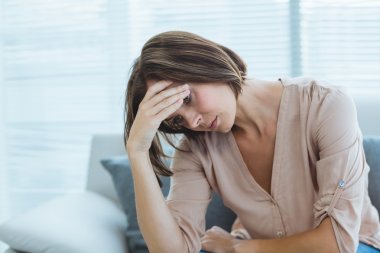The year 2020 has caused a lot of stress in people around the world. COVID-19 pandemic outbreak has taken lives of loved ones, jobs of millions of people, millions of people ran out of business, students faced lockdown and quarantine situations, lost their academic year, fun, life and what not! Millions of people are dealing with anxiety and depression and undergoing therapies to come out of the traumatic attack caused by this pandemic outbreak.
While undergoing therapies, people try to dilute the symptoms of depression and anxiety however you never know when your depression symptoms can relapse.
Depression relapse is a situation when symptoms of depression reoccur after four months of depression-free life. While this is common in almost 50 percent of people who come out of a traumatic depression are likely to encounter one more episode of depression and treatment. But learning how to know if you are a victim of depression relapse and methods to deal with depression relapse is important. This article will help you understand the cause, symptoms and ways of coping with a depression relapse.
Causes of Depression Relapse
There can be an end number of causes that may invoke the feeling of depression. This pandemic situation has already double folded the causes of depression and anxiety. Anything or anyone around you can trigger the causes of depression.
If you are undergoing any treatment or on medication for depression, your chances of getting another wave attack are higher. Painful memories, rumours, previous mistakes, negative comments, loss of loved ones, stressful events, isolation, loss of a job, business or relationship, changes in family, separation, divorce or having an unwanted child, anything can trigger you fall back into depression relapse. You should be prepared with your homework on coping with a depression relapse.
Symptoms of Depression Relapse

Symptoms of depression relapse may not be similar to the symptoms you experienced earlier during the first episode of depression. If you ever feel that you are going through these symptoms, you should consult with a therapist and start your treatment as early as possible.
Difficulty in Concentration
Brain fogging or difficulty in concentration is one common symptom of depression relapse. If you face difficulty in making a decision or rehearse slow-down approach in making decisions, it’s time to connect through a therapist.
Loss of Interest
People lose interest in their routine life and their deep interest in their hobbies and past activities seems to be fading out. You may lose interest in your partner for no reasons and your interest in sex gets reduced to level zero.
Irritation with Everything
If you get easily irritated or annoyed on every small thing around you, if you get angry at your friends, loved ones for no major reasons, it’s time to take precautionary measures.
Changes in Sleep Pattern
When you experience changes in your sleep pattern, you awake multiple times at night and can’t take a sound sleep, you worry about all the activities that you did during the day. You go to bed unhappy and come out restless in the morning, it’s time to deal with depression relapse.
Social Withdrawal Symptoms
If you experience social withdrawal symptoms, if you don’t wish to call, text or connect with anyone personally or on social media, if you feel like to detach your strings with everyone you know, you are suffering from depression relapse.
Feeling Hopeless
If you constantly feel worthless, teary, down, hopeless, or unworthy for no reasons, you should watch your thought process. Many external events can influence your feelings and cause depression or withdrawal symptoms. You may not feel worth living on the earth and your existence may disturb you a lot. If such feelings last long for around 2 weeks, it’s time to consult a therapist.
How to Deal with Depression Relapse
If you find that most of the symptoms listed above are matching with your routine life, it’s time to take precautionary measures and consult a therapist for immediate attention. Different types of therapies, medication and practices are involved to deal with a depression relapse.
A therapist is the best judge to examine and initiate the treatment however the common practices are as follows.
Cognitive Behavioural Therapy (CBT): Is a psychological involvement through experts that aims to improve your mental health condition. CBT aims at stimulating and altering unhelpful cognitive distortions and behaviours to help you improve upon your emotional, personal, mental and behavioural development. Strategies suggested by your therapist can mild the effect of depression relapse.
Interpersonal Therapy (IPT): Is an approach by the therapist to encourage you to build a positive lifestyle. Your interaction with people around you, relationship and response towards the activities around you turns positive.
What You Can Contribute to Fix it?
You need to change your approach towards depression relapse and stand still to fight against the circumstances. Coping with depression relapse requires a lot of initiatives at your end.
- Dwell your focus towards positivity and focus on your purpose of life.
- You can reach out to friends, family and relatives to have a fun-filled time.
- Take participation in different activities you like and cherish the moment spent well.
- Practicing positivity and hopefulness is very important while struggling through tough times.
- Adapt to a healthy routine and diet plan with light exercise on a regular basis.
- Constantly remind yourself that the phase is temporary and will end soon.
- Set up a routine of going to bed early and taking sound sleep.
Summing Up
Almost everyone is suffering from the symptoms of depression and anxiety however if it’s a constant behaviour, you need to learn how to deal with a depression relapse. My expectation from the world was my biggest cause of depression and I learnt ways of coping with depression relapse and things turned positive. I can see flowers everywhere without any bushes or thorns. If you practice positivity towards life, life will amaze you with lots of surprises.








